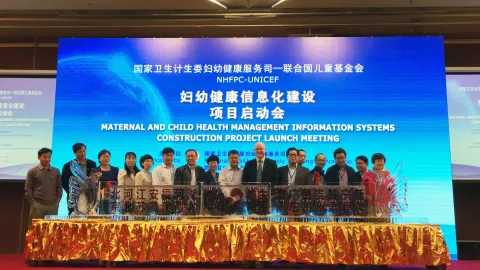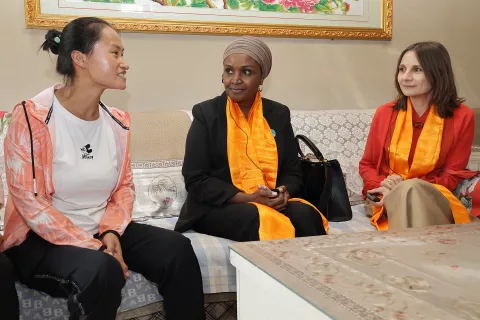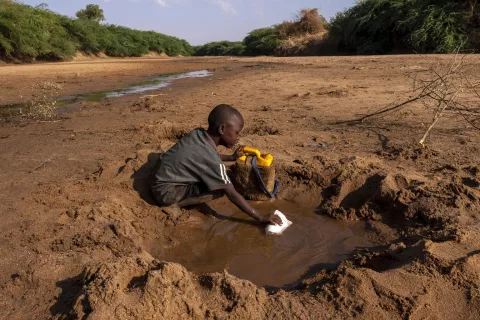Dr. Deng Carries the Torch
Dr. Deng Carries the Torch
After 31 years, the people of Xiabao Village have come to depend on Dr. Deng Guicai. Largely due to his efforts, the community has benefited from improved health, in spite of a recent economic decline.
With the help of his family and support from the county hospital, Dr. Deng serves the 1300 people in his village by running a modest medical center out of his home. Dining and living rooms have been converted into an office and a waiting area, and his door is left open to a continual stream of visitors, all of whom he knows by name.
Dr. Deng is part of a generation of village doctors who started practicing even before they graduated from high school. With a mere nine months of training, he began at age 17. “When I was in school, practicing meant injecting myself with needles,” he says. “Thankfully, things are very different now.”
In 2000, UNICEF's Primary Health Care/Mother-Child Health Project was launched in Xiabao. Today, the impact of the project's initiatives on safe medication, safe motherhood, and safe child health care are evident. Those impacts include decreased levels of diarrhea and malnutrition plus a nearly 100 percent rate of Vitamin A and Hepatitis B immunization coverage and in-hospital births.
Dr. Deng says there is a noticeable improvement in people's health and development, particularly younger people. But this achievement has come only with great labor. Dr. Deng routinely walks to all four surrounding villages to conduct health promotion and education activities. Change, he says, occurs one family at a time, and it is up to him to educate a generation of mostly illiterate and uneducated parents.
Gaps in China's welfare and health reforms are felt acutely in Xiabao Village, where every cent counts. Much of Dr. Deng's energy goes to filling in these gaps by increasing access to quality health care services. Inadequate funding in rural areas often results in hospitals using drugs to finance the health care system, leading to high costs and unsafe practices. Over-prescription of antibiotics, for example, has led to a rise in preventable disabilities among children, while malpractice and drug abuse have becoming common. Through UNICEF's Safe Medication initiative, Dr. Deng has avoided the trap of compensating for lost income by increasing prescriptions and buying and selling drugs on the black market.
Instead, adopted a new system, charging a flat service fee of RMB 1.5 to all patients and limiting his supply of medication to the county hospital. He keeps meticulous records and invites anyone who is interested to see his carefully logged entries of patients and prescriptions.
“If I didn't truly love my work, I don't think I would have been able to do this much,” he says. “It requires a lot of patience to really help people.”
As economic hardship mounts, life has gotten tougher for Dr. Deng, a widower and the father of five children. He worries about supporting his family, and has borrowed several thousand dollars to compensate for the drop in his income. Even so, he still has great hopes of one day opening a new village health center with his son.





